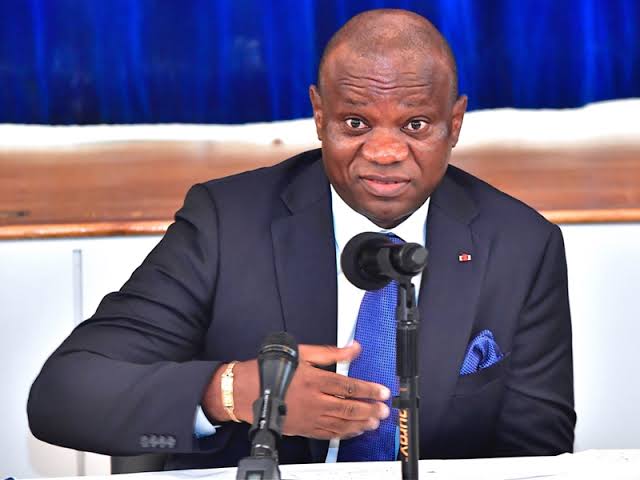By Peter Omopo
Gabon’s newly sworn-in president, Brice Clotaire Oligui Nguema, is stepping into office with a strong popular mandate but faces formidable economic challenges as he takes the helm of the oil-rich Central African nation.
Oligui, a 50-year-old general who came to power in an August 2023 coup, was officially elected president with 94.85 percent of the vote in the April 12 election, which international observers said was largely free of irregularities. His swearing-in ceremony on Saturday drew a crowd of around 40,000 at a stadium near the capital, Libreville, signaling high public expectations for reform and development.
As he begins his term, Oligui inherits a nation heavily dependent on oil but burdened by infrastructure deficits and mounting debt. “I measure with gravity the immensity of the burden that falls upon me,” the president said during his inauguration speech.
His campaign was anchored on six key priorities: overhauling the water and electricity sectors, boosting youth employment through entrepreneurship, expanding housing and transport, ensuring social justice, enhancing human capital, and implementing governance and sustainable development reforms.
One of the most immediate issues is Gabon’s fragile power grid, operated by the public utility SEEG, which suffers frequent outages due to years of underinvestment. Despite its name, the country’s highway directorate oversees a road network in which only 2,000 out of 10,000 kilometres are currently usable, highlighting a severe lack of critical infrastructure.
Oligui has sought to portray himself as a builder, frequently launching or relaunching construction projects across the country. His campaign materials featured him in a builder’s hard hat, and state television has regularly showcased footage of ongoing development work.
Among the flagship projects promised is a new north-south railway line linking the strategic deep-water port of Mayumba to the Booue hydroelectric dam, aimed at stimulating internal trade and power supply.
Economic diversification remains a pressing challenge. Gabon’s economy is still heavily reliant on oil, which has underpinned government revenues since the 1950s but is no longer sufficient to sustain long-term growth. “There is still dependence on oil,” said Francois Gaulme, a researcher at the French Institute of International Relations (IFRI). “The economy needs to be diversified, and this has never been done on a large scale.”
With a fragile economy and high public expectations, President Oligui’s ability to deliver on reforms could define Gabon’s future trajectory beyond the oil era.

